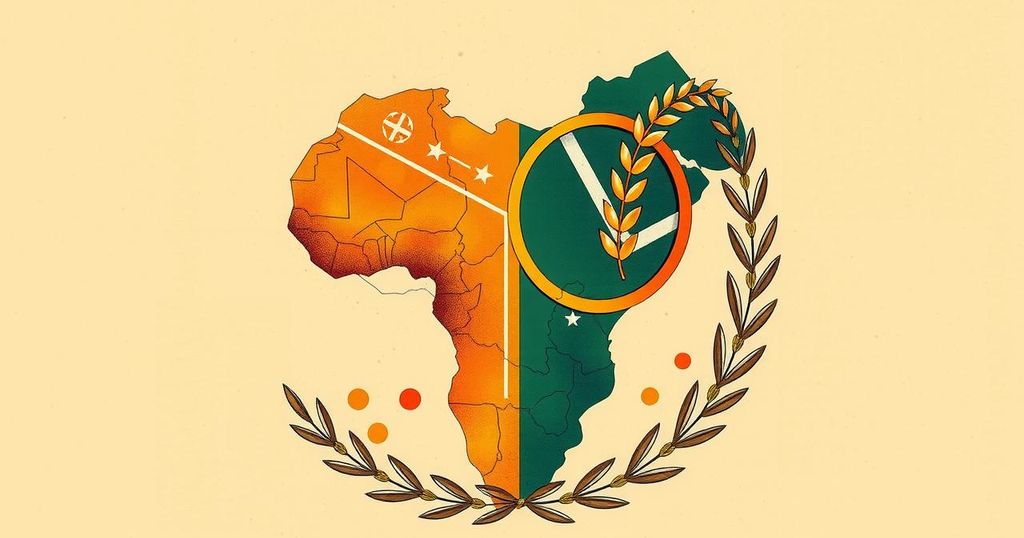President Umaro Mokhtar Sissoco Embaló’s decision to dissolve the parliament and delay elections has sparked significant controversy in Guinea-Bissau. The opposition accuses him of undermining the constitution and threatening civil unrest. ECOWAS’s inability to intervene effectively contrasts sharply with its previous crisis management in the region, raising critical questions about its authority and efficacy. Embaló’s future decisions will determine both Guinea-Bissau’s stability and ECOWAS’s credibility.
In December 2019, President Umaro Mokhtar Sissoco Embaló won the presidential elections, granting him a five-year term to govern Guinea-Bissau. However, in December 2023, he controversially dissolved the parliament without announcing a date for new elections, prompting opposition parties to accuse him of deliberately delaying the electoral process to consolidate his power, thereby compromising the constitution. Opposition leaders have threatened mass protests and civil disobedience unless a clear election date is established.
Amid this political turmoil, a dispute arose over the duration of Embaló’s term. The opposition asserts that his mandate ends on February 27, 2025, as stipulated by the constitution. In contrast, a ruling from the Supreme Court has controversially extended his term to September 4, 2025, an extension the opposition vehemently opposes.
In September 2024, Embaló initially announced his intention not to seek re-election, only to later suggest that he might reconsider based on family discussions. This indication has intensified the political instability in Guinea-Bissau, raising concerns over the country’s future governance.
On March 3, 2025, an ECOWAS delegation was dispatched to mediate the escalating political situation; however, this mission was abruptly curtailed by President Embaló. He warned the mediators to refrain from interfering in the nation’s internal affairs, resulting in an abrupt termination of their diplomatic efforts.
Following the diplomatic impasse, President Embaló confirmed his pursuit of a second term in the upcoming November elections during a conversation with French President Emmanuel Macron, signaling his preference for French engagement over regional mediation by ECOWAS. This development raises questions about his alignment with foreign influences beyond his country’s colonial history with Portugal.
ECOWAS’s subsequent silence on the matter highlights its inability to exert authority in Guinea-Bissau, contrasting sharply with its previous interventions in The Gambia’s political crisis and Niger’s military upheaval in 2023. The organization’s inaction poses vital questions about its intervention protocols and the definition of internal affairs among member states.
As a former ECOWAS president, Embaló’s apparent disregard for effective leadership further worsens the situation, plunging Guinea-Bissau into political chaos that could destabilize the region. Only time will reveal whether he intends to depend upon France’s support or his personal relationship with President Macron during this political crisis.
In light of such complexities, some suggest that Dr. Mohamed Ibn Chambas, the AU representative for conflict resolution, should be called upon to assist in this urgent situation in Guinea-Bissau. Given his focus on The Gambia, it may be time for him to redirect his diplomatic efforts to the pressing afflictions facing Bissau. It is crucial that this mission remains prioritized, with appropriate compensation assured for his expertise.
In summary, President Embaló’s actions and decisions signal a troubling trajectory for Guinea-Bissau’s political landscape. His dissolution of parliament and refusal to set election dates have prompted significant opposition, revealing vulnerabilities in ECOWAS’s capacity to mediate effectively. The situation poses crucial implications for regional stability and the credibility of ECOWAS, as well as for the future governance of Guinea-Bissau. This evolving dynamic needs careful attention from both regional powers and international observers.
Original Source: thepoint.gm




